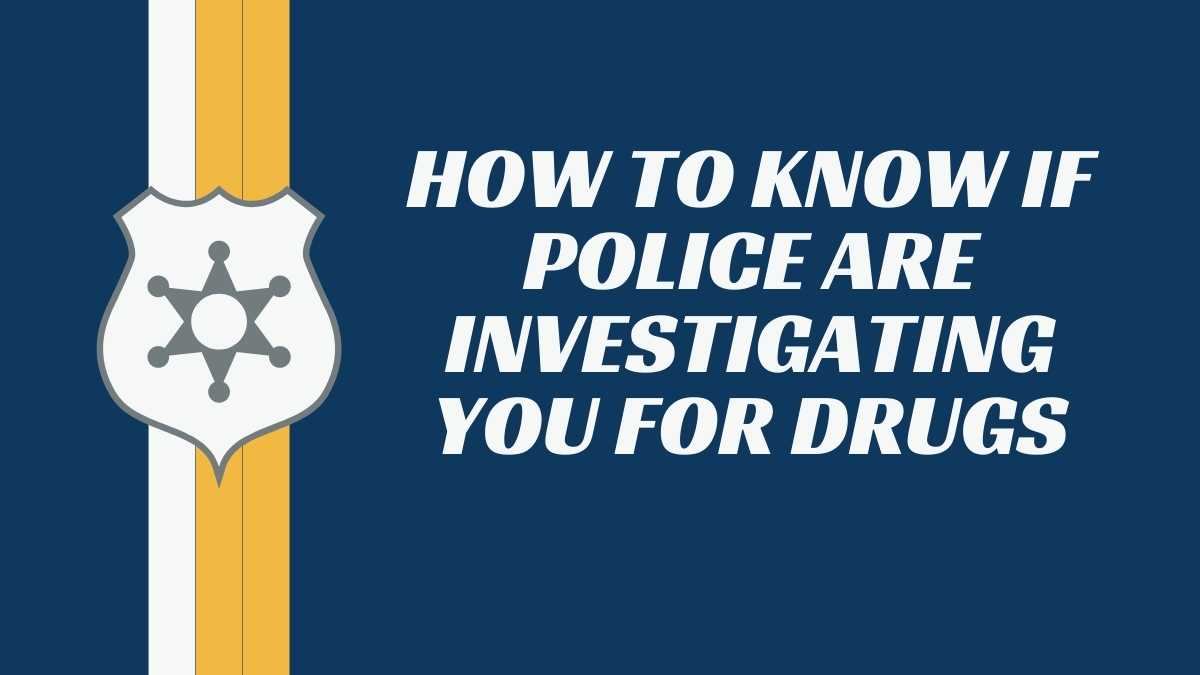Being under investigation for drug-related offenses can be a stressful and confusing experience. It’s important to know your rights and understand the process of a drug investigation, so you can take the necessary steps to protect yourself. In this article, we’ll discuss how to know if the police are investigating you for drugs, what to expect during an investigation, and your rights as a suspect.
Signs that the police are investigating you for drugs
There are several signs that the police may be investigating you for drug-related offenses. These can include:
Surveillance
The police may conduct surveillance on you, which can include monitoring your movements, tracking your phone, or even installing cameras in your neighborhood. This is typically done to gather evidence of drug-related activity.
Questioning of friends and family
The police may also question your friends, family, or associates to gather information about your activities and potential involvement in drug-related offenses.
Search warrant
If the police have probable cause, they may obtain a search warrant to search your home, vehicle, or other property for drugs or drug-related items.
Arrest
If the police have enough evidence to arrest you, they will take you into custody and charge you with drug-related offenses.
What to expect during a drug investigation
If the police are investigating you for drugs, it’s important to know what to expect during the process.
Interrogation
If the police suspect you of drug-related offenses, they may question you in order to gather more information. It’s important to remember that anything you say can be used against you in court, so it’s best to speak to a lawyer before answering any questions.
Search and seizure
If the police have a warrant, they may search your property for drugs or drug-related items. They may also seize any items they find as evidence.
Arrest
If the police have enough evidence to arrest you, they will take you into custody and charge you with drug-related offenses.
Court proceedings
If you are charged with drug-related offenses, you will have to go to court to face the charges. You will have the opportunity to plead guilty or not guilty, and your case will proceed from there.
Your rights as a suspect
If you are under investigation for drug-related offenses, it’s important to know your rights as a suspect.
The right to remain silent
You have the right to remain silent and not answer any questions. It’s important to remember that anything you say can be used against you in court.
The right to a lawyer
You have the right to a lawyer and should speak to one as soon as possible. A lawyer can advise you on your rights and help you navigate the legal process.
The right to be informed of charges
If you are arrested, you have the right to be informed of the charges against you.
The right to be protected against self-incrimination
You cannot be forced to incriminate yourself.
How can I tell if the police are investigating me for drugs?
Some signs that the police may be investigating you for drugs include surveillance, questioning of friends and family, and the execution of a search warrant.
